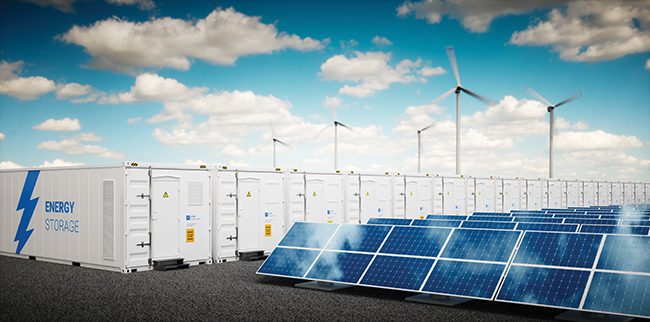Our Terms & Conditions | Our Privacy Policy
The Outlook for Energy M&A Amid Global Tariff War
The uncertainty surrounding the global tariff war is reshaping the landscape of mergers and acquisitions (M&A) within the energy sector. This dynamic environment presents both challenges and opportunities for investors, compelling them to navigate a complex web of trade policies, supply chain disruptions, and geopolitical shifts.
Challenges and Opportunities: The changing trade policies and tariffs have created a significant level of uncertainty within the energy sector. This has led to a cautious approach toward M&A activities. While new energy deal kickoffs on Datasite, an M&A platform that facilitates around 19,000 new deals annually, remained flat in the first four months of this year compared to the previous year, hold rates increased by two percentage points, and deal closure rates jumped by nine percentage points.
COMMENTARY
This trend mirrors global activity, where new deal kickoffs, especially in asset sales and mergers, on Datasite rose 4% year-over-year (YoY), during the first four months of the year. Similarly, deal hold rates on Datasite increased by four percentage points during the same period.
However, the impact of tariffs has been palpable. Global deal starts on Datasite dropped by 15% YoY in April, following an 11% surge in the first quarter. This drop coincided with the first major U.S. tariff announcement on April 2. Consequently, deal completion odds also declined, sinking to 44%, down from 49% YoY.
Effects on Oil and Gas M&A: The uncertainty induced by tariffs has notably affected the oil and gas M&A market. Many deals have been pulled back or put on hold as global buyers conduct more thorough due diligence. The use of virtual data rooms, where buyers interrogate deal information using question and answer tools, has become increasingly common. Tariff risk analysis is now a critical component of every valuation model.
Counterbalancing Factors: Despite the challenges, there are factors driving deal activity within the energy sector. Technological innovation, cost reductions, and rising demand for zero-carbon solutions are creating opportunities for M&A. These developments provide a measure of counterbalance to the negative impact of tariffs and trade uncertainties.
For example, with demand and energy consumption by data centers, especially those powering artificial intelligence, projected to grow by 10% to 15% annually through 2030, companies are racing to secure resources and infrastructure. According to the International Energy Agency (IEA), global electricity demand from data centers, cryptocurrencies, and artificial intelligence (AI) could more than double by 2026, reaching more than 1,000 terawatt-hours (TWh) annually, roughly equivalent to Japan’s total electricity consumption.
Much of this growth is driven by AI models requiring intensive computing resources, particularly large language models and generative AI applications that depend on vast server farms. This trend is prompting renewed interest in nuclear power as a stable, carbon-neutral energy source capable of supporting around-the-clock operations without the intermittency challenges of solar or wind. However, geopolitical tensions and trade restrictions on critical materials like enriched uranium and advanced reactor components could slow progress. As a result, businesses must carefully account for these regulatory, logistical, and supply chain variables when evaluating potential investments in the evolving energy landscape.
Navigating Unpredictability: The volatility in the trade environment necessitates vigilance among dealmakers. Policy changes can either accelerate or delay deal timelines, and preparation is key. Anticipating increased levels of review and longer review processes is crucial. Leveraging technology, particularly artificial intelligence (AI), can expedite the due diligence process and enhance efficiency.
The Role of AI in M&A: AI is already transforming the M&A landscape by identifying potential targets, automating due diligence, and using predictive analytics to improve accuracy. Currently, one in five dealmakers employs generative AI in the M&A process, and many rank AI adoption as their top operational priority this year.
Strategies for Success: To thrive in this evolving landscape, dealmakers must strengthen their due diligence processes, strategically use AI, anticipate regulatory scrutiny, and stay ahead of geopolitical shifts. Proactive strategies, including prioritizing deal readiness and leveraging technology to mitigate risks, will be essential for success.
While the global tariff war has introduced significant challenges for European energy M&A, it has also underscored the importance of adaptability and innovation. By embracing proactive strategies and leveraging technological advancements, dealmakers can navigate the complexities of the current trade environment and capitalize on emerging opportunities. The key to success lies in preparation, vigilance, and the strategic use of AI to enhance efficiency and accuracy in the M&A process.
—Mark Williams is Global Chief Revenue Officer at Datasite Enterprise, a business unit of Datasite, a leading SaaS platform used by enterprises globally to execute complex, strategic projects.
Images are for reference only.Images and contents gathered automatic from google or 3rd party sources.All rights on the images and contents are with their legal original owners.



Comments are closed.